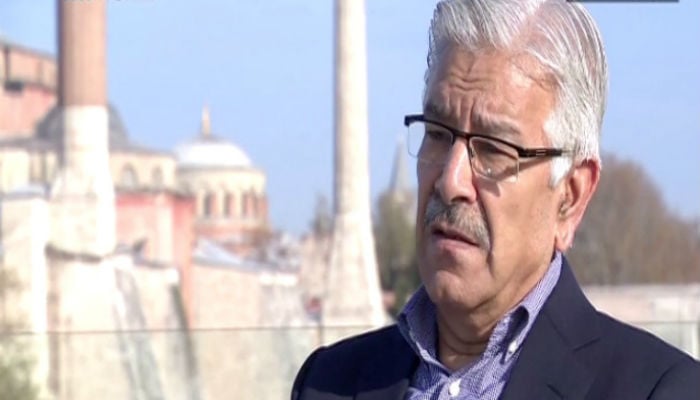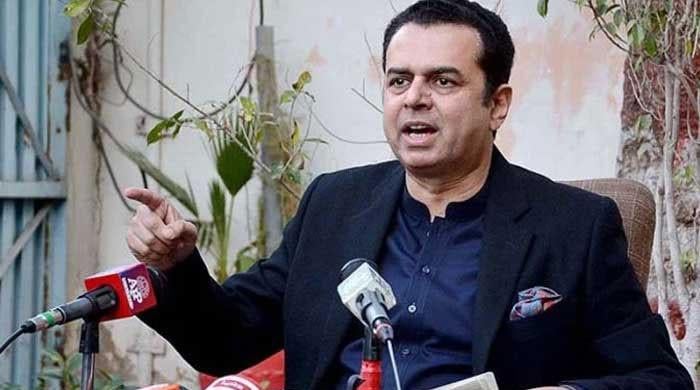Modi government hampering Pakistan-India ties: Khawaja Asif
Daesh is present in three provinces of Afghanistan, says foreign minister
December 06, 2017

ISTANBUL: Foreign Minister Khawaja Asif remarked that the government of Indian Prime Minister Narendra Modi is hampering the relations between Pakistan and India.
“We would like to have a good relationship with the Indians, but I don't think there is a chance of any improvement for relationship with the present religious extremist government in Delhi,” he said while speaking to Imran Garda on The Newsmakers, a current affairs programme of TRT World.
When asked if Modis' government is religious extremist, he remarked: "Modi's government what they did in Gujarat when Modi was the chief minister he killed, he massacred over 2,000 Muslims over there. He's massacring Muslims in Kashmir also. So there is actually a genocide and ethnic cleansing of Muslims going on.”
The foreign minister also alleged that the ruling Bharatiya Janata Party in India is “a religious extremist movement.”
Asif was also asked about Indian claims that Pakistan is ‘obsessed’ with it. Responding to this, Asif said that it is not an obsession. “India is a danger to our security, we must be vigilant. This is the bedrock of our policy.”
On relations with Afghanistan, Asif shared: “We want to be a part of a peace process in Afghanistan in any bilateral or multilateral platform. However, if people in Kabul want to play proxy of India, then that is also not acceptable.”
Replying to a question on Afghanistan claims that Pakistan spreading terrorism in their territory, Asif clarified that Afghan government making such allegations because of “lack of control and lack of writ of Kabul government."
The Afghan government just wants someone to blame, he said, adding that Afghanistan failed in fight against terrorism, while Pakistan succeeded.
“They [Afghan government] lost territory to Talibans, not because of us. They have record opium harvest this year. They have huge corruption in government machinery. Their soldiers sell arms to Talibans. Daesh is present in three of their provinces,” Asif remarked
He called the claims of the United States and Afghanistan of Pakistan supporting Haqqani Network as “absolutely baseless.”
"Haqqanis don't need safe havens in Pakistan. They have about 40 percent territory of Afghan territory with Taliban. Why would they have safe havens in Pakistan?”
There was some truth the claims a few years back. But in the operation launched in 2014, Pakistan has pushed the terrorists “out Bajaur, Khyber, South Waziristan, Swat.” He added, “We cleared our area at huge cost. Human cost."
Reiterating his earlier claims, Asif said that US harsh statements against Pakistan was just them trying to “scapegoating” Pakistan for “their own failures of last more than 15 years.”
The foreign minister while explaining the country’s foreign policy said: “We are trying to disengage ourselves from the role we played in two to three decades [and] have a more regionally oriented [policy].”
He added, “Our national interest is our primary concern. We will weave our foreign policy around our own national interests.”
Our region is more of a priority for us than the United States, he remarked.
"This is where we live and this is where we should search for foreign policy options," he added.
On the role of Pakistan Army in the country, Asif explained that the institution of the army is actively involved in defending the country and determining Pakistan’s priorities.
“Army has a constitutional role of consultation on major issues,” he added.









